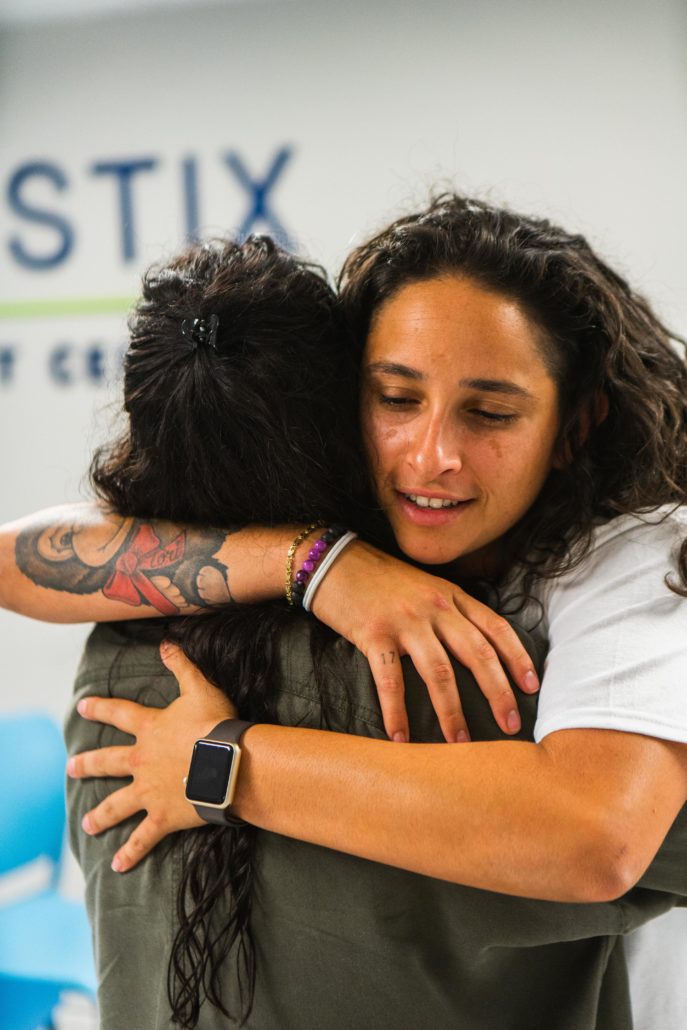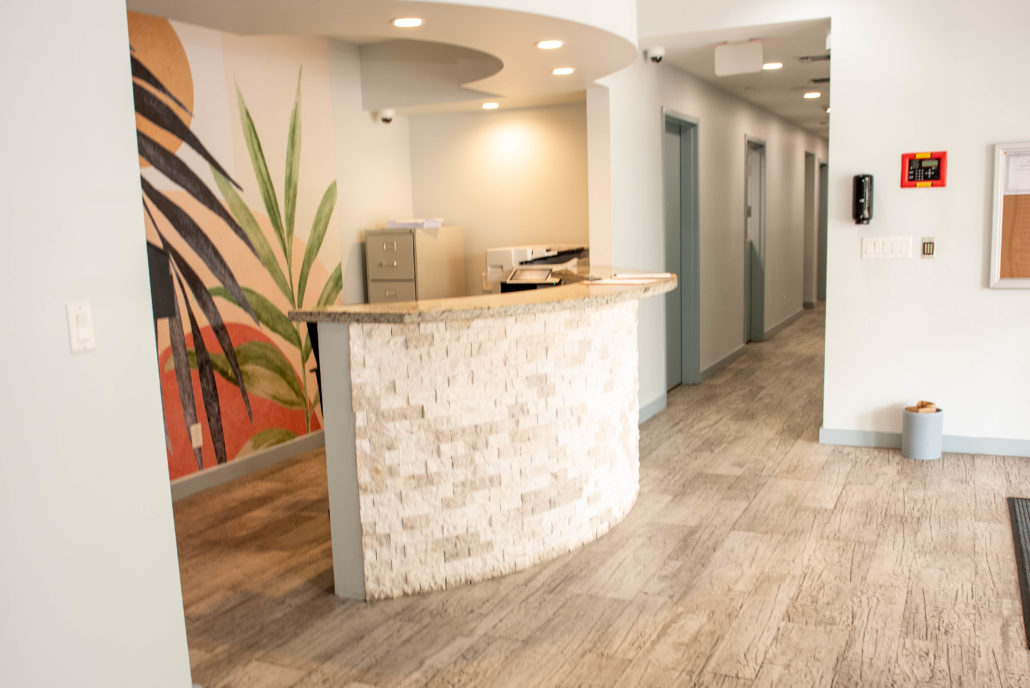Get a free mental health assessment and find out what treatment options are most suitable for you. We Level Up Florida can help with inpatient primary mental health therapy. Depending on the extent of secondary behavioral disorders such as addiction we can first help assess your condition and thereafter guide you to suitable treatment options.
Prescription drug addiction treatment is the use of medication in a way not intended by the prescribing doctor. Addiction is far more familiar with prescription medications such as sleeping pills and tranquilizers. Moreover, being addicted to prescription drugs is every bit as real as addictions to alcohol and illegal drugs. Prescription drug addiction can be hard to beat. However, prescription drug addiction treatment programs can help users break their physical and psychological dependence on the drug.
The three Classes of Medication Most Commonly Misused Are:
- Opiates—usually prescribed to treat pain
- Central nervous system [CNS] depressants (this category includes tranquilizers, sedatives, and hypnotics)—used to treat anxiety and sleep disorders
- Stimulants—most often prescribed to treat attention-deficit hyperactivity disorder (ADHD)
Various prescription drugs have a high potential for causing addiction in some people, even when the medications are prescribed appropriately and taken as directed.
Causes of Prescription Drug Addiction
Some prescription drugs are more addictive than others. Most addictive drugs affect your brain’s reward system by flooding it with dopamine. This results in a pleasurable “high” that can motivate you to take the drug again. Over time, you might become dependent on the drug to feel “good” or “normal.” You might also develop a tolerance to the drug. This can push you to take larger doses.
However, it’s also possible to become addicted to medications that your doctor has prescribed. If you are having prescription drug abuse, you may compulsively use it, even when it causes you harm, it is necessary to look for a Prescription Drug addiction treatment.
Symptoms of Prescrption Drug Abuse
Prescription drug addiction can change how your brain works. Some prescription drugs are more addictive than others. Most addictive drugs affect your brain’s reward system by flooding it with dopamine. Prescription drug addiction helps you return your body and mind to its normal, healthy, and well state.
Typical signs and symptoms include but are not limited to the following:
- Stealing, forging, or selling prescriptions.
- Taking higher doses than the prescribed dosage.
- Excessive mood swings.
- Increase or decrease in sleep.
- Poor decision-making.
- Appearing to be high, unusually energetic or revved up, or sedated.
Effects of Prescription Drug Addiction
Psychoactive prescription drugs can also harm the mind. Because of the way the drugs interact with the brain, certain chemical changes occur with every use. Those changes can lead to depression, anxiety, and a whole range of psychoses, including paranoia and schizophrenia.
Opiods
Opioids produce a euphoric effect. They’re often prescribed for pain.
Signs and symptoms of prescription drug abuse, particularly opioids, may include:
- Work problems.
- Social problems (loss of support of family and friends, isolation)
- Problems at school.
- Financial problems.
- Insomnia
- Headaches
- Difficulty breathing
- Changes in vision
- Nausea
- Changes in behavior
- Adverse health consequences like abscesses, pulmonary complications, infections in the heart, collapsed veins, permanent lung, liver, and kidney damage.
- History of drug-related crimes.
- Involuntary commitment to a mental hospital.
- Death from overdose or suicide.

Codeine
Codeine is typically prescribed to treat mild to moderate pain. It has a sedative effect when consumed in high quantities. Also, it can cause altered levels of consciousness.
Fentanyl
It is a prescription drug for acute and chronic pain. Typically for cancer patients. It is reported that fentanyl is involved in over half of prescription drug-related overdose deaths across ten states, according to the Center for Decease Control and Prevention (CDC) [1].
Meperidine (Demerol)
It has the brand name Demerol. A prescription drug for moderate and severe pain.
Behavioral Symptoms of Meperidine Addiction:
- Visiting several doctors in an attempt to acquire multiple prescriptions.
- Using Meperidine in situations where it is dangerous to do so.
- Abusing Meperidine after having experienced negative repercussions because of prior Meperidine abuse.
- Borrowing or stealing Meperidine that has been prescribed to another person.
- Neglecting personal, academic, or occupational responsibilities to acquire, use, or recover from Demerol.
- Acting in a reckless or risky manner.
- Acting deceptively regarding one’s whereabouts or activities.
- Withdrawing from family and friends.
Physical symptoms Meperidine Addiction:
- Diminished appetite
- Respiratory depression
- Dry mouth
- Urinary retention
- Muscle rigidity
- Insomnia
- Constipation
Cognitive symptoms Meperidine Addiction:
- Impaired ability to focus and/or concentrate
- Memory problems
- Inability to make effective judgments
- Psychosocial symptoms:
- Dramatic mood swings
- Anger and aggression
- Depression
- Loss of interest in formerly significant activities

Central Nervous System (CNS) Depressants
Central Nervous System (CNS) depressants include barbiturates and benzodiazepines. They’re also called tranquilizers and have a calming effect. Signs and symptoms of misuse include:
- Nausea
- Vomiting
- Vizziness
- Headache
- Changes in vision
- Drowsiness
- Lethargy
- Irritability
- Confusion
- Memory problem
- Loss of coordination
- Slurred speech
Alprazolam (Xanax)
It is commonly sold under the brand name Xanax. Alprazolam is benzodiazepine. It is for anxiety and panic disorder treatment.
Signs and symptoms of alprazolam misuse include trouble sleeping, swelling of the hands or feet, and tremors.
Clonazepam (Klonopin) and Diazepam (Valium)
Clonazepam and diazepam are CNS depressant drugs. It is for anxiety and panic disorders treatment, also a treatment for seizures. Clonazepam has a brand name Klonopin. Diazepam has the brand name of Valium.
Signs and symptoms of clonazepam or diazepam misuse may also include:
- Paranoia
- Hallucinations
- Constipation
- Stimulants
Stimulants
Amphetamine (Adderall)
Amphetamine is commonly known as speed. It is a CNS stimulant, which increases brain activity. Misuse of this drug may include:
- Increase in energy and alertness
- Hyperthermia or increase in body temperature
- High blood pressure
- Rapid breathing
Methylphenidate (Ritalin)
Methylphenidate is a stimulant that affects your CNS. It has the brand name Ritalin. It increases the dopamine level in the brain. Like other stimulants, it can be habit-forming. Methylphenidate misuse may also lead to agitation or trouble sleeping.
Prescription Drug Addiction Treatment
Medication-Assisted Treatment (MAT)
Medication-assisted treatment (MAT) is the use of medications, in combination with counseling and psychotherapy to provide a “whole-patient” approach to the treatment of substance use disorders is part of the Prescription Drug Addiction Treatment. Medications used in MAT are approved by the Food and Drug Administration (FDA). Also, MAT programs are clinically driven and tailored to meet each patient’s needs. This is according to the Substance Abuse and Mental Health Service Administration [2]
The goal of Prescription Drug Addiction Treatment and MAT is full recovery, including the ability to live a self-directed life. Furthermore. this treatment approach has been shown to:
- Improve patient survival
- Increase retention in treatment
- Decrease illicit opiate use and other criminal activity among people with substance use disorders
- Increase patients’ ability to gain and maintain employment
- Improve birth outcomes among women who have substance use disorders and are pregnant
The following drugs are used in some prescription drug abuse treatments. Buprenorphine, methadone and naltrexone are used to treat opioid use disorders. It is also used for codeine, oxycodone, and hydrocodone addiction. These MAT medications are safe to use for months, years, or even a lifetime. As with any medication, consult your doctor before discontinuing use.
Psychotherapy
Psychotherapy help patients:
- Modify their attitudes and behaviors related to drug use
- Increase healthy life skills
- Persist with other forms of treatment, such as medication
- Patients can receive Prescription drug addiction treatment in many different settings with various approaches.

If you or your loved one is suffering from prescription drug addiction, indeed help is just a phone call away. Professional prescription drug addiction treatment is necessary for fast and effective recovery. To learn more, contact us today at We Level Up FL Mental Health Treatment Facility. We provide utmost care with doctors and medical staff available 24/7 for life-changing and lasting recovery. We provide an enhanced opportunity to return to a fulfilling and productive life, enjoy the Prescription drug addiction treatment.
Inpatient medical detox and residential primary addiction treatment may be available at our affiliated facility at Level Up West Palm Beach Rehab. For some primary behavioral health treatment clients, medical detox and or addiction rehab may be required first. If you have a co-occurring severe substance abuse diagnosis, please contact us prior to beginning inpatient mental health therapy. Treatment services may vary. Please call us to learn which treatment options are most suited for your individual needs.
Sources:
[1] Prescription Drug Addiction Treatment Center of Decease Control and Prevention – https://www.cdc.gov/drugoverdose/deaths/index.html
[2] Prescription Drug Addiction Treatment – Substance Abuse and Mental Health Service Administration – https://www.samhsa.gov/medication-assisted-treatment